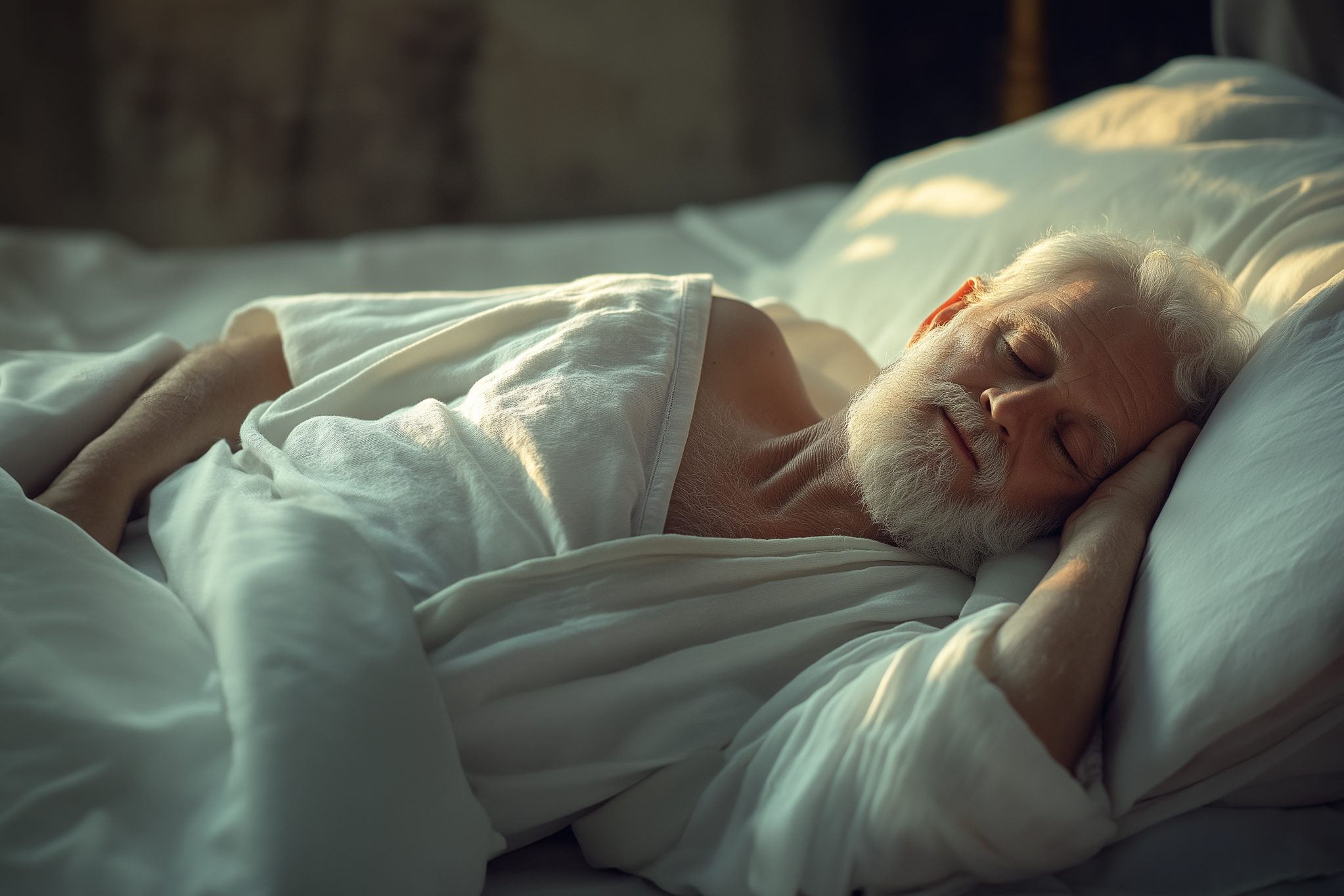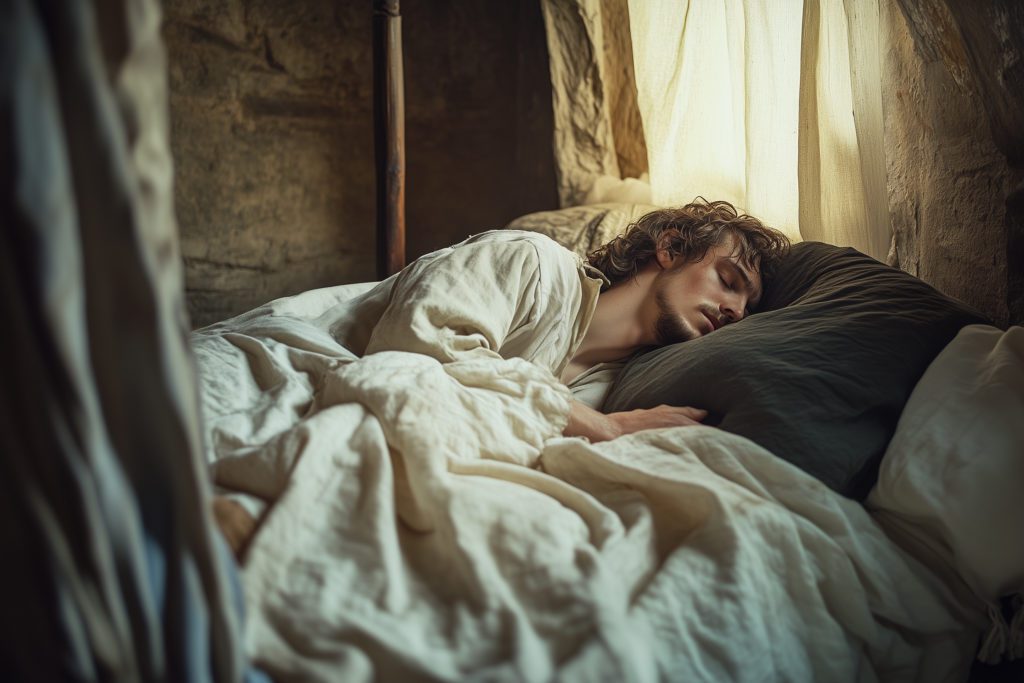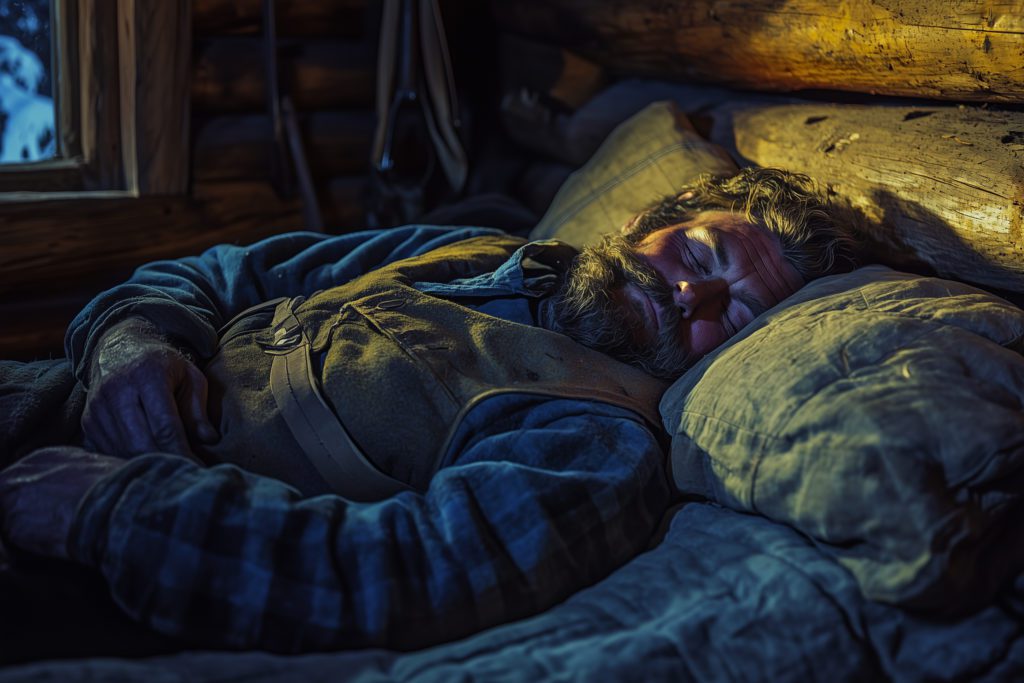
The Sleep Habits of Historical Figures: Surprising Insights into Famous Sleepers
Historical figures share some unusual sleeping habits, such as sleeping facing north or polyphasic sleep. Discover the sleep habits of 6 famous sleepers.

History provides ample information guiding our present-day living, with each failure or success of the past teaching us a valuable lesson. As such, it’s unsurprising that we like to look to the past for guidance on habits for today; after all, those who are famous and successful must have habits worthy of copying, right?
Sleeping habits are a trait universally shared—since every human throughout history has had to sleep—and so it’s interesting to see what sleeping habits those who were successful and famous enough to be remembered decades (or even centuries) later had. As an added step, you may even find a habit that you want to try out yourself.
The Sleeping Habits of 6 Historical Figures
Have you ever wondered about the sleeping habits of the individuals who make up a history book? Some have sleeping habits that are undeniably unusual—let’s explore.
Thomas Edison Saw Sleep as a Semi-Necessary Indulgence
You read that right: Thomas Edison, the renowned inventor, didn’t think that sleep was a necessity but instead an indulgence, especially when people slept for too long. He believed that people overslept because they liked it, in a similar manner that you may overeat because something is exceptionally tasty.
Edison claimed to never sleep more than four or five hours per night and declared that the rest he did get was “real” sleep.
However, Thomas Edison had a unique way to come up with new ideas and inventions: by entering the hypnagogic state. Edison would nap for around an hour each day, and while sleeping, he would hold steel balls in both hands. When he fell asleep, the balls would fall from his hands, and the resounding clang would wake him. Once awake, he would immediately grab a pen and paper to write down any ideas he had.
This state between consciousness and sleep is what he attributes many of his ideas and inventions.
Winston Churchill: An Advocate for Daily Naps
While Edison felt that too much sleep was unnecessary, Winston Churchill proved that napping, when done advantageously, can give you a much-needed midday boost.
UK’s prime minister made a point to nap for at least an hour each afternoon, even when his country was in the midst of World War II. He found that this nap was crucial for him being able to work well into the evening, even stating that his nap allowed him to get a day and a half’s work done in just 24 hours.
Leonardo da Vinci Created The Da Vinci Sleep Schedule
As the father of polyphasic sleep, Leonardo da Vinci was a strong proponent that less sleep offered more time for creativity and innovation. Even more, instead of one short stretch of sleep, Leonardo da Vinci spaced his sleep throughout the day into small naps completed every few hours. The most commonly reported schedule he followed was a 20-minute nap every few hours. These 20 minutes were just long enough to banish some sleepiness and give him the energy needed to power through the next few hours.
Leonardo da Vinci no doubt accomplished a lot throughout his life, so this unusual schedule must have worked for him, and it was also shared by the inventor Nikolai Tesla.
Charles Dickens Slept Facing North
In an unusual turn of events, the famous writer Charles Dickens was less focused on his sleeping duration but instead on the direction in which he slept. He reportedly went to bed with a compass because he believed that he had to face north while sleeping and writing in order to be more creative.
Dickens was also reportedly an insomniac, so perhaps his creativity was too high, and all the possible story ideas were keeping him from sleeping.
Albert Einstein: Advancing Physics In His Sleep
Not all famous individuals from the past were light on their sleep; Albert Einstein is known to have slept for 10 hours each night, which is undoubtedly more than the average individual sleeps.
On top of his 10-hour snooze, Einstein also took daytime naps, showing that he wasn’t afraid to sleep. We’ve since seen studies reveal that those who get enough sleep see better cognitive performance, so the extra sleep Einstein had may be a contributor to his academic prowess. Albert Einstein even made a significant scientific discovery thanks to his sleep—the theory of special relativity came from a dream where cows were being electrocuted.
Sir Isaac Newton Didn’t Let Gravity Put Him to Sleep
Sir Isaac Newton, like many other historical figures, slept very little per day. In fact, reports say that after skipping out on sleep for five nights in a row, he experienced a nervous breakdown spurred on by utter exhaustion.
In addition to forfeiting sleep, Newton was also known for forgetting about other basic habits of survival, such as eating.
What We Know About Sleeping Now
While it’s interesting to look at the sleep habits of historical figures, it’s obvious that many of their sleep habits are not reasonable nor safe, such as neglecting sleep to the point of exhaustion like Sir Isaac Newton.
However, we can take some lessons from historical figures, such as the importance of napping for boosting energy and prompting creativity, and the value that we can find in analyzing our dreams, even if only to inspire a new idea.
We also know now that while many of us don’t need to sleep for as long as Einstein, he had the right idea in prioritizing his sleep.
No matter who you idolize for their work ethic or accomplishments, remember that when it comes to sleeping habits, we know a lot more now about how much sleep the body needs to function optimally, and some habits are best left in the past.

Written by
Jessica G
Medical writer freelancer who has written hundreds of articles on varying topics. Masters of Engineering degree in Biomedical Engineering.
Download Pillow
Get help
Press & News
Legal
Connect
X (Twitter)
Company
Copyright © Neybox Digital Ltd.



